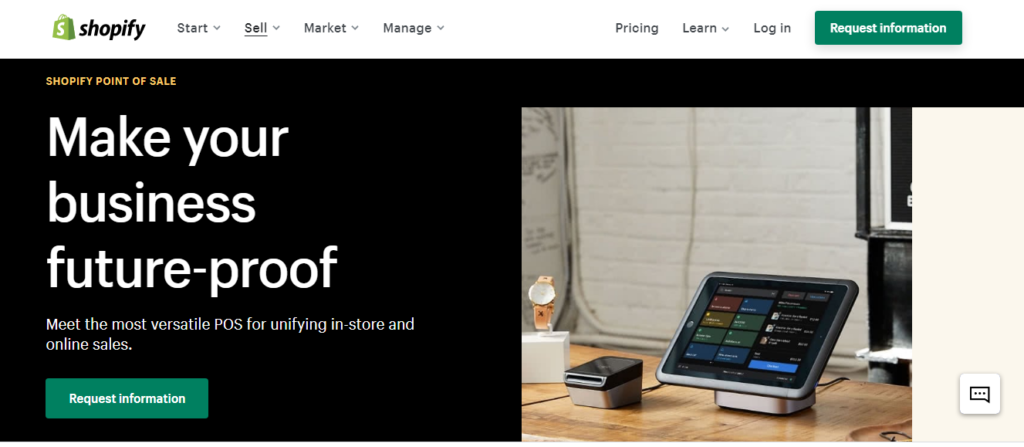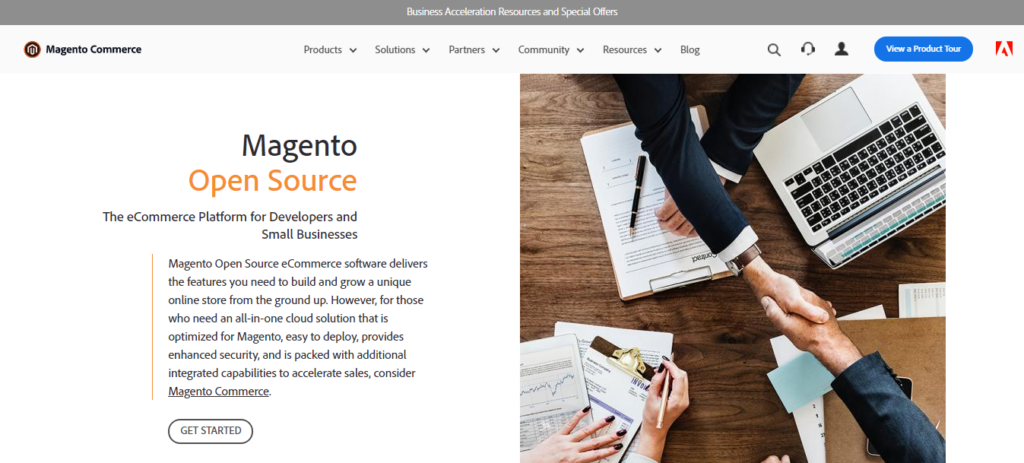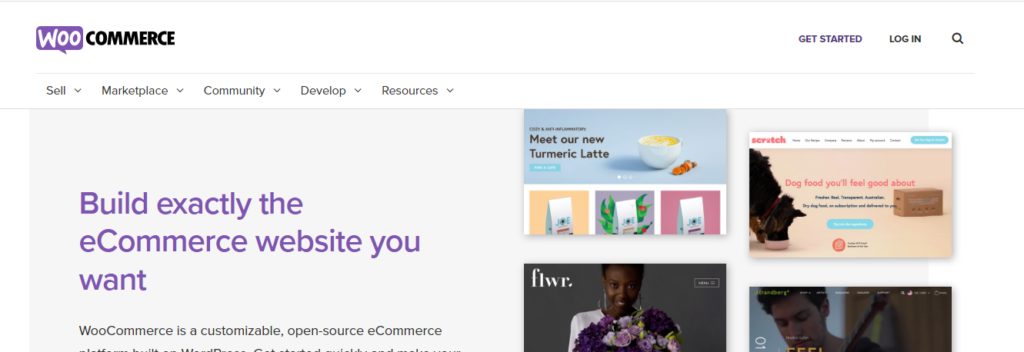Long gone are the days when you had to rent physical space for your retail store. With the booming of online platforms, running your business is now made convenient and affordable. You can choose to join an existing marketplace or can differentiate your store with an independent eCommerce website. Shopify is one excellent e-commerce platform that you can use to create and manage your own online store.
Here we’ll discuss what you need to know about Shopify. We’ll also have a look at Shopify alternatives that you can try out.
Shopify alternatives: What you need to know about Shopify

If you’re looking for an all-in-one ecommerce platform, shopify has got you. The site gives you all the tools you need to create, run and analyze your business. You can try out the 14-day free trial before going the premium way. Here’s some features to look out for:
Key Features
- Ease of use- Walking through the Shopify platform is such a breeze. The interface is clean, clear and simple for a beginner to maneuver. The best part is that they have the shopify expert marketplace where you can hire a pro to help you with setting up.
- Sales tools- With Shopify, you can sell on multiple channels, including Amazon, Ebay, Walmart, Instagram, Facebook Shops and yes, even your physical retail store, all from one platform. Thanks to Shopify POS, merchants can even connect their in-store and online sales, orders and inventory.
- Marketing- You can easily find your audience through content marketing and Shopify SEO tools. The platform also allows you to promote products with email marketing, Facebook ads and Google smart shopping. You also get apps such as Kit for automated marketing and business analtyic tools to help analyze sales.
- Themes/templates selection- You can browse from a wide array of the 70+ free and paid Shopify themes for your site.
- Domain and webhosting- Being a hosted platform, you do not need to source for a hosting provider elsewhere. Shopify offers webhosting with all their main plans. For domain, you can can use an existing domain name or register a new one with them.
- Payment and transaction fees- Unless you use Shopify payments, it is important to note that you will be charged an extra 2% fees on each transaction made. There are over 100 third party gateways.
- Apps and extensions- From the Shopify app store, you can select from an extensive range of apps (1200+) that will boost your site.
Shopify Pricing
Shopify offers three main plans as follows;
- Basic Shopify at USD$29/month
- Shopify at USD $79/month
- Advanced shopify at USD$299/month.
With all the plans, you get an ecommerce website and blog. Other plans include the The Shopify Lite which can turn your existing website/blog into an online store and the shopify plus with enterprise-grade solutions for large businesses.
While Shopify has a lot of great things to offer, you may still be eyeing certain features offered by a different ecommerce platform. Here are shopify alternatives that you can check out:
Shopify alternatives: Magento Commerce

Magento is a Shopify alternative that’s good for tech-savvy individuals. This is most particularly the case for the enterprise edition, which is geared towards companies. With the Magento platform, you can create your online store just how you like it.
Key Features
- Open-source ecommerce platform- Magento’s community edition is open-source and that means free to install. You will, however need to pay for what you require including web hosting, domain, extensions, and security. It also important to note that Magento is supported by only a few hosts. Therefore, unlike other open-source platfroms, installation may not be a walk in the park.
- Coding skills required- Magento is not the kind of platform to recommend to beginners. You need to interpret jargon and have some coding skills to actually create your store.
- Flexible- Though the need to code works against newbies in the tech world, it works well for the gurus. Unlike in Shopify where you take what’s available, you can customize the store to your liking with Magento.
- Themes and templates- The average cost for a ready-made theme is $100, while the custom themes can cost anywhere from $600 to $25,000.
- Multichannel sales tool- Magento, like Shopify allows for the selling of products on various channels over the same platform. The platform also has over 150 payment gateways. You can as well receive payment through a number of channels including WorldPay. Unlike Shopify, Magento does not impose its own transcation fees
Magento Pricing
Magento does not have fixed plans like shopify. Therefore, cost of creating an online store builder depends on what you require. Magento hosting with Siteground starts from $6.99 per month to $14.99 per month.
Shopify alternatives: Bigcommerce

Founded in 2009, Bigcommerce has since generated over $17 billion in merchant sales. Want to know why? Here are features of the online store builder that you should know:
Key Features
- In-built tools- Unlike many online store builders that rely on apps and extensions, big commerce has all its tools built in. The cost of these tools are included in the price plans and so you wont need to pay again.
- Themes and templates- Bigcommerce has 12 free themes and over 50 premium ones. The platform has an edge over shopify in that, when you switch themes, the content automatically reformats to fit the new design.
- Sales features- Bigcommerce has the multi-channel sales feature as well. The platfrom also charges 0% for transaction fees.
- In-house experts- You do not need to go far to source for pros to help with the technical work. Big commerce provides its own experts to help with that.
Bigcommerce Pricing
Bigcommerce has the Standard, Plus and Pro plan at $29.95/mo, $79.95/mo and $299.95/mo respectively. There is also the enterprise plan that is available at custom pricing
Shopify alternatives: Woocommerce

Woocommerce, like Magento, is an open-source e-commerce platform. The most basic difference is that Woocommerce is built on WordPress.
Key features
- Self-hosted platform – You will need to outsource a hosting provider for your Woocommerce site. Good thing is, there are several quality hosts that work well with the platform.
- Easy to use – If you have some experience with WordPress, then you should expect navigating the Woocommerce platform to just be as easy. There’s also so much documentation and tutorials available for users so you won’t get stuck.
- Payment – Paypal and Stripe are the default payment options on the platform. You can make other payment gateways available through add-ons. The best part is that there are no charges for transactions made on the platform.
- Add-ons and extensions – Woocommerce has access to more than 55000 free WordPress plug-ins. Your online store can easily get away with free extensions. However, if you’re focusing on serious growth, there are paid extensions to choose from.
- Themes and Templates – There’s a variety for you to choose from as Woocommerce supports nearly all WordPress theme
Woocommerce Pricing
Seeing as it is an open-source platform, Woocommerce is completely free to install. The costs you incurr will depend on your hosting provider and any extensions you choose.
You can also have a further look at the detailed Shopify vs WooCommerce comparison article from LitExtension.
Shopify alternatives: Wix ecommerce

Largely known as a website builder, and serving over 110 million users, Wix is also a go-to ecommerce platform. With their loyal backing, you can also trust their expertise in design for your online store. The tool is ideal for small to medium-sized businesses.
Key Features
- Beginner-friendly design – The platform uses a drag and drop editor that makes adding elements and texts to your site very simple. If you still don’t wish to drag and drop, you can utilize Wix.ADI, a tool that will help you create a personalized website in a few minutes. You will only need to answer a few simple questions and pick designs.
- Themes and templates – Being first and foremost a website builder, Wix has a number of themes you can choose from (500+). While not all are e-commerce based, you will not miss one that suits your style. The downside to having a Wix account is that you can not switch to another template after you’ve chosen one.
- What you see is what you get – Wix is a What You See Is What You Get (WYSIWYG) website builder. When you edit your pages, you can see exactly how your site will look once it’s live.
- Payment options – Wix eCommerce supports Paypal, Stripe, and Square for payment. The platform however doesn’t support Apple Pay or Amazon. They have an advantage over Shopify in that there is no percentage fee for transactions.
- Inventory management – With Wix eCommerce, you can sell unlimited products. For service products, you will need an app. You’ll also need an app for visitor analytics and revenue reports.
Wix Pricing
From as low as $20 per month, you can get your store up and running. The options are the Business Basic at $20/month, the Business Unlimited at $25/month and the Business VIP at $35/month.
Shopify alternatives: Square Online

Unlike many other ecommerce platforms that started as builders, Square has been known as a payment processor all along. In 2018, the company bought weebly and joined the online store building business.
Key features
- Easy to use- The platform is quite simple. On it, you can track product and abadoned cart recoveries from your dash board quick.
- Square payment gateaway- With the Square ecommerce platform, you have limited options when it comes to payment gatewwys. It’s granted that Square is the main payment option here. However, when you have the premium or premium plans, you can use Paypal.
- Partnered with over 22 hosting providers- You wont have a challenge getting a host for your site; Square has partnered with Siteground, iPage.com, HostMonster.com, NetFirms.com, PowWeb.com, Dotster.com, aSmallOrange.com, Verio.com, WebHostingPad.com and Midphase.com to provide you with unlimited options.
- Marketing tools- Square has inbuilt marketing featueres that supports paid ads and email marketing .
- Scalability- The ecommerce platform has over 200+apps to choose from to improve your site. You can begin with the free trial then upgrade with time.
Square Online Pricing
The three main pricing plans at Square ecommerce are:
- Professional at $12.00 /month
- Performance at $26.00/month
- Premium at $76.00/month
Conclusion
There’s too many shopify competitors that you can choose from. Ultimately, what’s best will depend on particular features that work for the kind of store you wish to have.
Frequently Asked Questions
1. What is the difference between a website and an online store?
A simple website is a platform hosted on a web server that gives internet users access to view personal/business information posted on the site. An online store, on the other hand, is a type of a website but with a special functionality that allows for processing of orders online.
2. How do you create an online store?
You can create an online store with an online store builder or an eCommerce website builder. The platform gives you the necessary tools you need to put together a virtual store. From the store, you not only the market but also sell and manage your inventory.
3. What are the best free eCommerce website builders?
Most online store builders have a free plan. Examples of these platforms include Shopify, Woocommerce, Square, and Magento.

